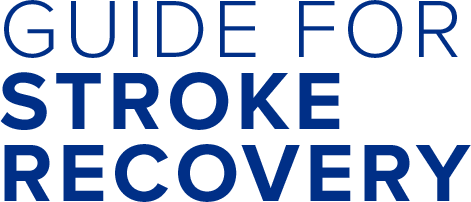Cognition refers to how we know things and how we think.
Cognitive difficulties are not as easy to recognize as physical problems after stroke. Even though changes in cognition may be more difficult to notice, they can make doing simple activities or daily tasks difficult. Research shows neuroplasticity in the brain is possible so your skills can improve over time.
It is important not to confuse changes in your cognition after stroke with dementia. If you are unsure, it is important to talk to your healthcare team about these changes so that you can learn and apply the right strategies to help you do the things you need and want to do.
What type of cognitive issues are common after stroke?
Below are types of cognitive issues a person can experience after a stroke and some strategies that can help to manage these changes.
Attention
What is it?
Being able to concentrate on a task for the time needed to complete it.
How can it affect you?
- You may be easily distracted so it is hard to focus
- You may have trouble paying attention to more than one thing at a time
Strategies for you and your caregiver
- Reduce distractions. For example, turn off the radio or TV when you are trying to focus
- Complete tasks in a quiet place
- Take your time and do things one step at a time
Orientation
What is it?
Being aware of the time, place and who you are.
How can it affect you?
You can be mixed up about what day it is and miss important appointments or events.
Strategies for you and your caregiver
- Use a calendar to keep track of the days and important appointments
- Keep note of your appointments and check them off when done
- Try to follow a consistent daily routine
Memory
What is it?
Being able to remember and recall personal experiences, information and skills.
How can it affect you?
You may have difficulty remembering:
- Names of people you just met
- What you ate for breakfast
- Memories from your childhood
Strategies for you and your caregiver
- Write important things down in a journal, daily planner, calendar or on sticky notes
- Repeat important information
- Use signs and labels on drawers / cupboards / medication bottles
- Put things away in the same place so it is easier to find
- Complete tasks one step at a time
Insight
What is it?
Your ability to recognize and understand your abilities and limitations.
How can it affect you?
You may attempt tasks that are unsafe or too difficult.
Strategies for you and your caregiver
- Clear your surroundings of clutter
- Keep your walking aids or assistive devices close by
- Have a plan when you go out
- Identify a friend or family member you trust to help you with decisions about what things are safe to do on your own and what things you may need help with
Judgement
What is it?
Your ability to make the right choices and decisions while keeping within your current level of ability.
How can it affect you?
It may lead you to make unsafe choices.
Strategies for you and your caregiver
- Identify a friend or family member whom you can discuss your decisions with
- Consider having a friend or family member present when trying things for the first time. For example, travelling on the bus or going grocery shopping.
Sequencing
What is it?
Being able to arrange things or do tasks in the correct order.
How can it affect you?
You may find it is hard to start a task or remember what the next step of the task should be.
Strategies for you and your caregiver
- Try to perform tasks the same way each time
- Give yourself time to think things through and practice tasks that you are having difficulty with
- Make a list of the steps required to complete a task. Number each step and use this list to help you to complete the task.
Problem solving
What is it?
Being able to recognize a problem and find a solution.
How can it affect you?
- You may have trouble recognizing that a problem has occurred
- When a problem occurs, you may have trouble knowing how to deal with the problem
Strategies for you and your caregiver
- Ask family and friends for help when needed
- Break the problem down into smaller tasks
- Focus on one part of the problem before moving onto the next
- Think about different ways to approach the problem and discuss these with friends or family
